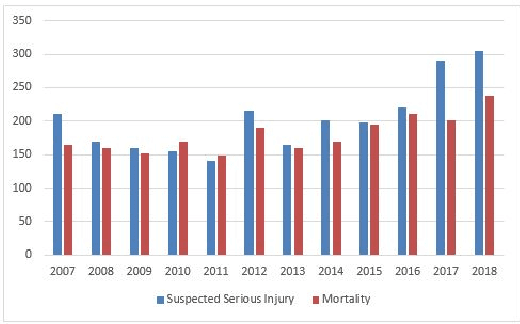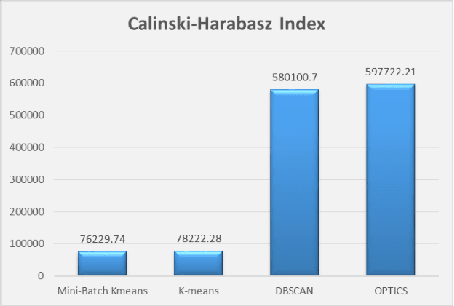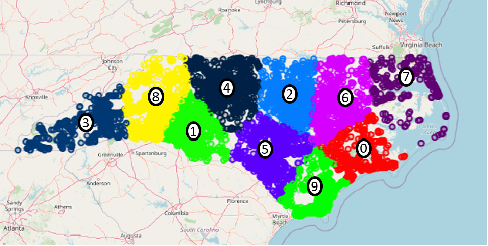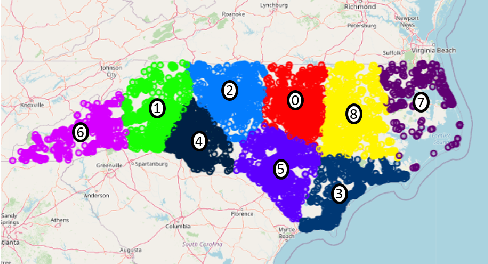Clustering Algorithms to Analyze the Road Traffic Crashes
Paper and Code
Aug 07, 2021



Selecting an appropriate clustering method as well as an optimal number of clusters in road accident data is at times confusing and difficult. This paper analyzes shortcomings of different existing techniques applied to cluster accident-prone areas and recommends using Density-Based Spatial Clustering of Applications with Noise (DBSCAN) and Ordering Points To Identify the Clustering Structure (OPTICS) to overcome them. Comparative performance analysis based on real-life data on the recorded cases of road accidents in North Carolina also show more effectiveness and efficiency achieved by these algorithms.
* International Conference on Science and Contemporary Technologies
(ICSCT) 2021 * 6 pages, 10 figures, 2 tables
 Add to Chrome
Add to Chrome Add to Firefox
Add to Firefox Add to Edge
Add to Edge